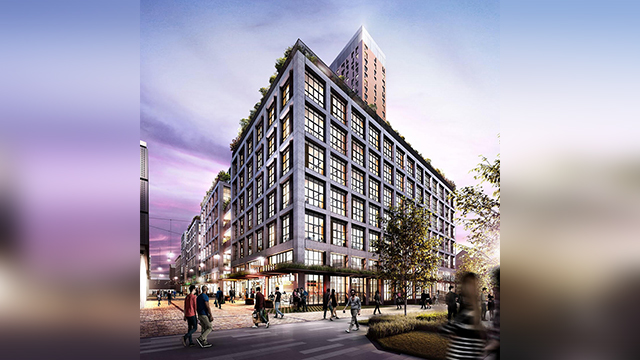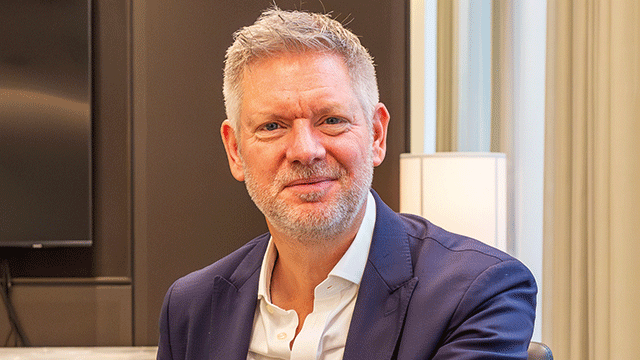York Central’s role in a new sense of prosperity
COMMENT The UK chancellor’s pledge to go “further and faster” to kickstart the country’s economic growth reignited the debate around investment in the prosperity of our regions, with the bulk of her announcements skewed to a clear London and South East bias.
While we question how to drive national growth, it is important to stress the crucial role that the North of England’s big cities can play. Population pressures in London and the South East mean growth there has drawbacks, and there is no doubt that a national rebalancing is necessary.
The revival of Manchester, Leeds and Newcastle drove much of the UK’s 2%-plus GDP growth during the 2000s and the same can be true in the next 10 years through a new model of sustainable development which sees growth dispersed across regions.
COMMENT The UK chancellor’s pledge to go “further and faster” to kickstart the country’s economic growth reignited the debate around investment in the prosperity of our regions, with the bulk of her announcements skewed to a clear London and South East bias.
While we question how to drive national growth, it is important to stress the crucial role that the North of England’s big cities can play. Population pressures in London and the South East mean growth there has drawbacks, and there is no doubt that a national rebalancing is necessary.
The revival of Manchester, Leeds and Newcastle drove much of the UK’s 2%-plus GDP growth during the 2000s and the same can be true in the next 10 years through a new model of sustainable development which sees growth dispersed across regions.
Rachel Reeves said she would ensure a “presumption in favour of building” for new homes around stations, as a key component of her national growth push.
This will be a key feature of reforms in the government’s planning and infrastructure bill, and a crucial factor in the delivery of 1.5m new homes that Labour has pledged.
Action station
The good news is that in York, development is well under way on a project that will capitalise on everything that is best about Britain’s railways, cities and national growth agenda – the £2.5bn York Central, where McLaren Property and Arlington are the developers.
We are working with Network Rail, Homes England and York City Council to build in excess of 1m sq ft of commercial and retail space, a minimum of 2,500 new homes, a 200-bed hotel, extensive park land and public realm and two new civic squares on a site right next to York’s main station.
Infrastructure works costing £135m are well under way, York Central will create 6,500 jobs.
The highly regarded think tank Centre for Cities is taking a keen interest in York Central: Andrew Carter, its chief executive, wrote after a visit to York last year that “York Central… is vital to enabling the city to accommodate (some of) the demand it is experiencing.”
Centre for Cities’ Cities Outlook 2025, published in January, found the average workers in London, Reading and Slough earn in eight months what the average worker in Burnley earns in a whole year.
It is the performance of high-knowledge rather than high-street jobs that drive this difference, with the performance of a city’s “export base” determining wages.
In particular, it is the ability of places to attract and grow innovative, cutting-edge businesses that influences wider prosperity. Cambridge and London have three times more of these cutting-edge businesses than Middlesbrough and Doncaster. York is more prosperous than Burnley, Middlesbrough and Doncaster, but a development of the scale of York Central – which is as well-connected in national terms and comparable in size to London’s King’s Cross regeneration – can play a part in this national rebalancing.
We will be creating an ecosystem of innovative and forward-thinking companies that will be one hour and 49 minutes on the train from London, one hour and 14 minutes from Manchester and 22 minutes from Leeds.
Exemplifying the innovation and ambition so championed by the government, York Central will be next to the ancient city centre, providing the perfect blend of old and new, attracting executives who are already familiar with the city’s world-famous cathedral, historic streets and medieval walls.
Next chapter
The clear vision is to create and write the next chapter in York’s long history with a world-class city quarter for everyone, both visitors and the people of York alike.
It will be a natural extension to that UNESCO heritage site, brimming with life and where the public parks will encourage sport, art, wellbeing, entertainment and relaxation.
Already we are seeing strong interest from UK institutional investors and global institutional investors, including sovereign wealth funds, in funding York Central.
Some 200 years ago, the railways sparked the Industrial Revolution and created the foundations of the United Kingdom that we know today.
For the next 10 years, the national mission is growth once again and, as a proud Yorkshireman, I believe York can play a big part in delivering a renewed sense of prosperity.
Tom Gilman is managing director at McLaren Regeneration











